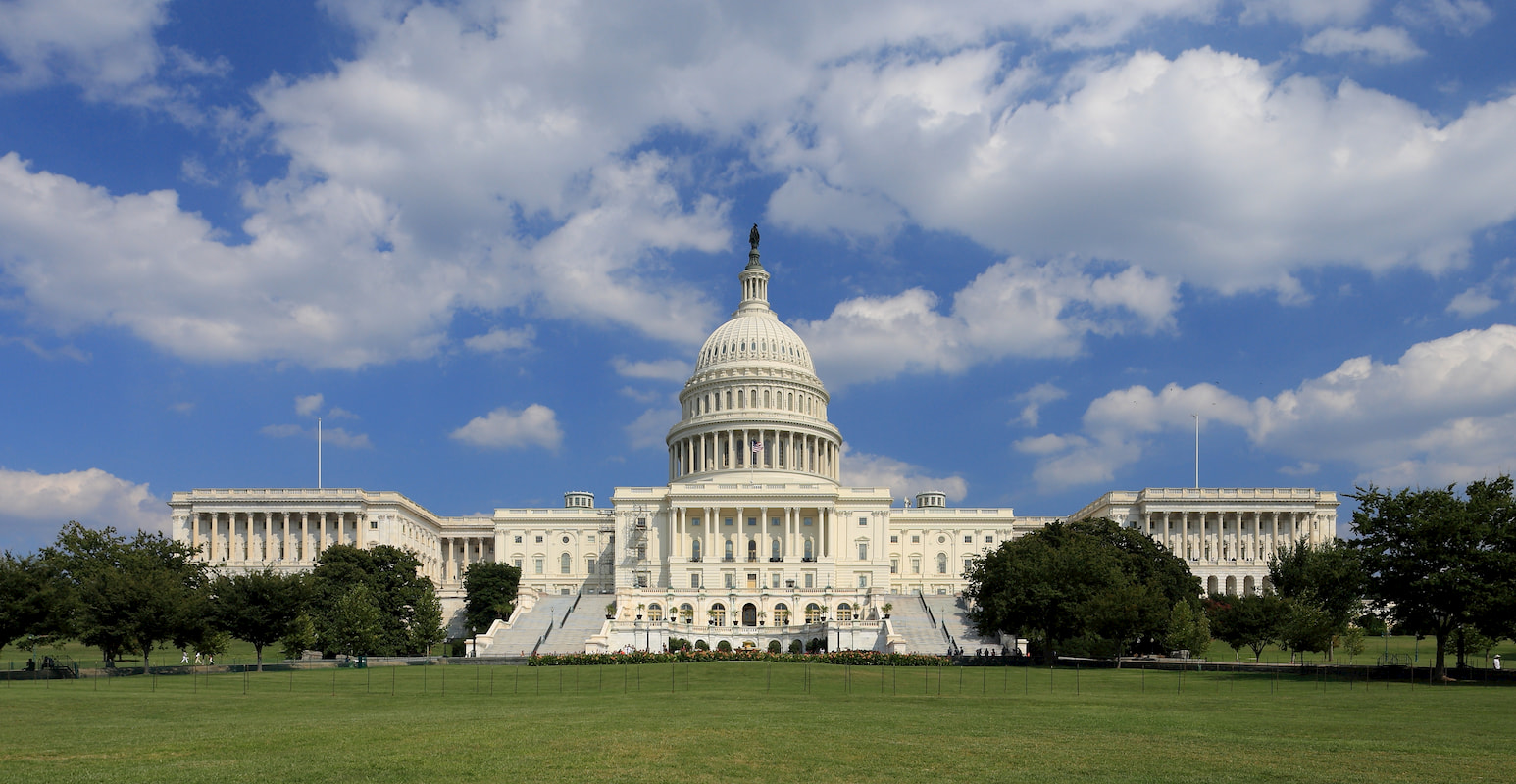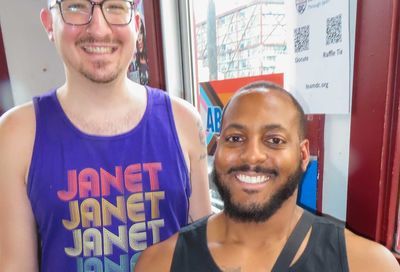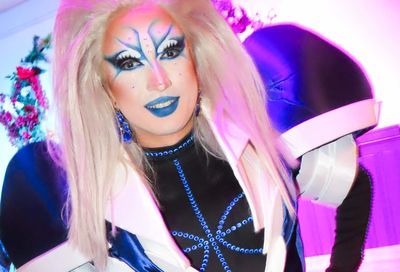Judge rules Colorado bakery discriminated against trans customer by refusing to fill birthday cake order
Autumn Scardina says bakery initially agreed to create a custom cake, but then reneged after finding out she was transgender.

A baker who refused to bake a wedding cake for a same-sex couple has violated Colorado’s anti-discrimination law by also refusing to bake a birthday cake for a transgender woman.
Denver District Court Judge A. Bruce Jones ruled that Jack Phillips, the proprietor of Masterpiece Cakeshop in Lakewood, Colorado, had discriminated against trans woman Autumn Scardina when he refused to fill an order she submitted requesting a birthday cake that was blue on the outside and pink on the inside — with the colors representing Scardina’s gender transition.
Jones also ordered Phillips to pay a fine of $500, on the grounds that he had violated the state’s nondiscrimination law by refusing to bake the cake she requested simply because of her transgender status, reports Denver NBC affiliate KUSA.
Phillips, who is likely to appeal the decision, argued that he could not bake the cake for Scardina because of the significance of the cake coloring, which runs counter to his personal Christian beliefs that a person cannot transition from their assigned sex at birth. To bake the cake, he argued, would constitute an endorsement of transgenderism.
Phillips made a similar argument in 2012 when he refused to bake a wedding cake for a gay couple, who later filed a complaint with the Colorado Civil Rights Commission.
After the commission found that Phillips had discriminated against the couple due to their sexual orientation, the American Civil Liberties Union and ACLU of Colorado filed suit on behalf of the couple.
The case then worked its way through the courts and ultimately up to the U.S. Supreme Court, which determined that the Colorado Civil Rights Commission had demonstrated hostility toward Phillips’ religion and not taken his sincerely held beliefs opposing same-sex marriage seriously.
Throughout that case, Phillips had argued that his religious beliefs did not permit him to create cakes that glorified same-sex marriage, on the grounds that it would be a form of compelled speech, constituting an “endorsement” of same-sex marriage.
He also maintained that his issue was not the identity of gay people, but the idea that baking a cake is a form of “artistic expression” protected by the First Amendment. As such, his lawyers with Alliance Defending Freedom argued, Phillips was perfectly willing to make birthday cakes and other special orders for LGBTQ individuals, just not products relating to same-sex marriages.
But in this most recent case, Scardina, a lawyer, claims she took Phillips’ word that he would have no problem creating a birthday cake for an LGBTQ individual. So in June 2017, she requested a custom birthday cake (not a “gender transition cake,” as has wrongly been reported in several outlets) that was blue on the outside and pink on the inside.
According to Scardina, Masterpiece Cakeshop was fine with her order when she initially requested a cake for six to eight people with a pink interior and blue exterior. But she says it was only after she explained the personal significance of the cake’s colors, representing her gender transition, that the bakery refused to fill the order.
Both Phillips and his wife refused to bake the cake, with Phillips telling her he “did not make cakes for ‘sex changes,'” according to her complaint. She then sued for discrimination.
See also: Advocates: Masterpiece Cakeshop decision underscore need for explicit LGBTQ legal protections
But Jones found, based on the facts of the case — and the Phillips family’s response to Scardina’s initial complaint, which constitutes “a judicial admission that cannot be controverted” — that the bakery had agreed to make a cake meeting certain size and color specifications. Jones also found, based on confirmation from Phillips’ wife, that the bakery would have made a pink cake with blue frosting if Ms. Scardina had not shared her transgender status or the meaning of the colors to her.
“Only after Mrs. Phillips stated that the Bakery could make the requested item did Ms. Scardina then share that she had chosen those colors to reflect and celebrate her transition from a male to a female,” Jones wrote in his ruling. “…Defendants agree that a pink cake with blue frosting has no inherent meaning and does not express any message.”
Additionally, Jones ruled that Scardina was “aware of the previous litigation” involving Masterpiece Cakeshop, but that it was her understanding that Phillips only objected to selling same-sex wedding cakes due to his beliefs about marriage.
“Ms. Scardina hoped that Mr. Phillips’ statements about selling birthday cakes to members of the LGBT community were true and that he would make her the requested cake for her birthday,” wrote Jones. “The Court specifically finds that Ms. Scardina’s request was a not ‘set-up’ to initiate litigation. In making this finding, the Court has considered Ms. Scardina’s other interactions with Defendants.
“The Court accepts her explanation for any rudeness, and relies not only on Ms. Scardina’s testimony at trial, but her demeanor while testifying. Ms. Scardina credibly stated that she would have purchased the cake if Defendants had agreed to make it.”

As a result of those facts, Jones found that, despite Phillips’ claims about artistic and religious freedom, the case is about a refusal to sell a product to someone because of discrimination.
But Alliance Defending Freedom takes issue with the facts of the case, promising to appeal on the grounds that filling Scardina’s request would have violated the Phillips family’s beliefs. The conservative legal outlet argues that the case is about compelled speech, and should thus revolve around the message that Phillips is sending by creating the cake.
“Radical activists and government officials are targeting artists like Jack because they won’t promote messages on marriage and sexuality that violate their core convictions,” Kristen Waggoner, general counsel with Alliance Defending Freedom, said in a statement. “This case…represents a disturbing trend: the weaponization of our justice system to ruin those with whom the activists disagree.”
But Scardina’s lawyer, John McHugh, said in a statement that the case is really about “a business that is open to the public that simply says to an entire class of people in the community that your identity, who you are, is something that is objectional.”
See also:
Justice Department files statements of interest in two transgender cases
Danica Roem used a troll’s anti-trans message to raise thousands for her campaign
Caitlyn Jenner claims it’s easier to come out as trans than as a Republican
Support Metro Weekly’s Journalism
These are challenging times for news organizations. And yet it’s crucial we stay active and provide vital resources and information to both our local readers and the world. So won’t you please take a moment and consider supporting Metro Weekly with a membership? For as little as $5 a month, you can help ensure Metro Weekly magazine and MetroWeekly.com remain free, viable resources as we provide the best, most diverse, culturally-resonant LGBTQ coverage in both the D.C. region and around the world. Memberships come with exclusive perks and discounts, your own personal digital delivery of each week’s magazine (and an archive), access to our Member's Lounge when it launches this fall, and exclusive members-only items like Metro Weekly Membership Mugs and Tote Bags! Check out all our membership levels here and please join us today!


























You must be logged in to post a comment.